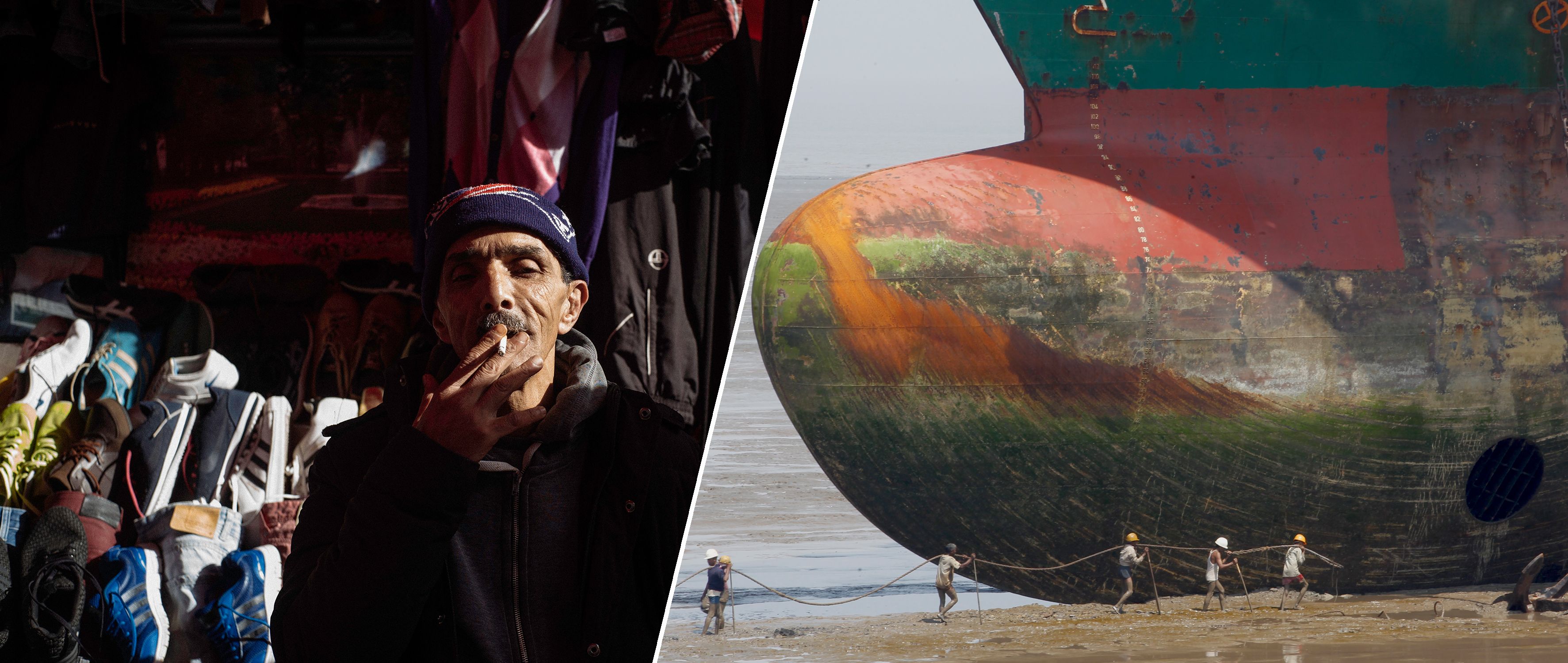Asian shipbreaking and toxic African tobacco: the winners of the “Investigation Award” shed light on Swiss companies’ shady activities
Zurich/Lausanne, January 21, 2019

Lausanne-based reporter Marie Maurisse examines the secret recipes that Swiss tobacco companies use for cigarettes earmarked for export to Africa, in particular to Morocco. In 2017 alone, 2,900 tonnes – or 3,625 billion cigarettes – were exported to the country. Tests undertaken exclusively for her research “The blazing success of Swiss cigarettes in Africa” revealed a scandalous double standard: cigarettes produced by Philip Morris and Japan Tobacco International (JTI) in Switzerland and sold in Morocco contained markedly higher levels of particles, nicotine and carbon monoxide than those produced for the domestic market. In contrast to the laws in the EU, Swiss legislation allows tobacco companies registered in the country – clearly not by coincidence – to produce and export products that are significantly more harmful and addictive than those sold in Switzerland. According to the WHO, the number of smoking-related deaths in Africa will double by 2030 (with help from Switzerland).
The Belgian journalist Gie Goris looked for signs of Swiss shipping companies in the Indian town of Alang, where ships go to die in secret. There, he met middle-aged wrecks, angry trade unionists and workers deprived of their rights and risking their health on a daily basis for a meagre wage. Even MSC uses Alang to dispose of its floating toxic waste while boosting its profits. The “recycling” methods of the Geneva-based company, which recently attracted critical headlines for the damage its containers caused in the North Sea, show the vast rift between sustainability promises and the reality of the Swiss shipping industry leaders’ business practices. In addition, the NGO researcher supporting Goris, Nicolas Mulinaris, sheds light on the political context behind this illegitimate but legal export of toxic waste and shows the important but ignominious role played by landlocked Switzerland in dealing with ship corpses.
Set up to celebrate Public Eye’s 50th anniversary in 2018, the “Investigation Award” honoured journalistic research into human rights violations, environmental offences or other irresponsible practices of Swiss companies in developing or emerging countries. A jury comprised of renowned media professionals and Public Eye staff selected two projects from a shortlist of 55. The two winners were financed by a round of crowd-funding carried out in April 2018, which 325 people generously contributed to.
Click here for more information, or contact:
Oliver Classen, Media Director, +41 (0)44 277 79 06, oliver.classen@publiceye.ch

